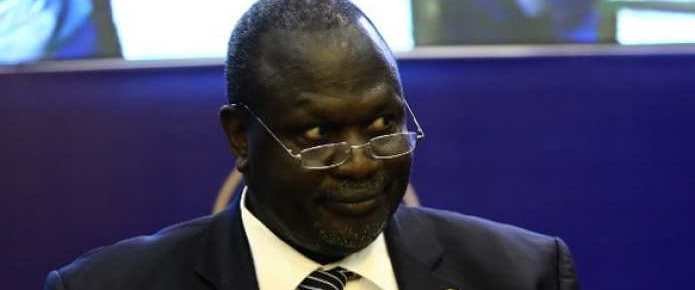South Sudan’s main opposition led by Riek Machar has welcomed President Salva Kiir’s order returning the country to the original 10 states.
The SPLM-IO has however expressed serious reservations about the establishment of Ruweng and Pibor administrative areas by the president.
Ruweng is one of the oil producing areas in South Sudan.
Manawa Peter Gatkuoth, the official deputy spokesman of the SPLM-IO group, told Radio Tamazuj that the main opposition wonders why the president decided to carve Ruweng area out of Unity State.
“The issue of Abyei area is very clear to us. But we wonder why the president decided to lump Abiemnhom and Pariang to create an administrative area there. Ruweng is part of Unity state and there is a land dispute there,” Manawa said on Saturday.
According to Manawa, the SPLM-IO also expresses reservations about the establishment of Pibor Administrative Area, which is part of the greater Jonglei State.
The deputy spokesman said President Salva Kiir and opposition leader Riek Machar will meet to discuss the issue of Ruweng and Pibor administrative areas.
"We strongly support the return to the original 10 states because it resolves disputes over land and boundaries. We only have reservations about Ruweng and Pibor administrative areas," he explained.
However, Manawa said the issue of the number of states and their boundaries will be finalised through a constitution-making process before the end of the transitional period.
President Kiir created 32 states, after initially raising them from 10 to 28 in 2015. But the decision made during the civil war has remained a sticking point, delaying formation of the unity government.
Transitional government
Separately, Manawa said President Kiir and Dr. Machar are expected to meet ahead of the February 22 deadline to iron out some outstanding disputes in the peace deal.
The opposition official said a long road and major hurdles lie ahead in implementing the revitalised peace agreement, citing inflammatory statements by some officials in the incumbent government led by President Kiir.
“There are some government officials who don’t want peace in the country. So, if those officials would be retained in the unity government, the implementation of the peace agreement will definitely face hurdles,” he said.
Manawa noted that "critical tasks" are still not completed, including issues related to security arrangements and the integration of forces.
Under the terms of the 2018 peace agreement, South Sudan’s rival parties are to create a unified army and agree on the number of states and their boundaries.
President Salva Kiir and opposition leader Riek Machar are under pressure to urgently implement the move to a transitional government before the expiration of February 22 deadline.




